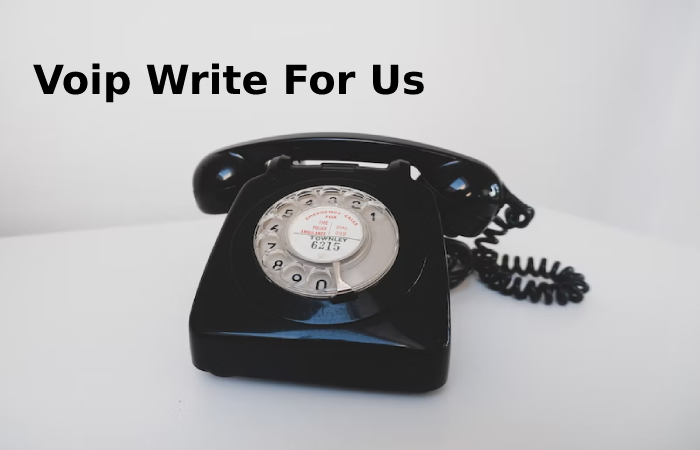Voip Write For Us
VoIP encryption is expensive. Many businesses have trouble implementing VoIP because of latency, packet delay, interference, etc., which can lead to poor audio quality and dropped calls. Adding VoIP encryption can consume more bandwidth and slow down the web, and not all businesses can afford to upgrade their network and add encrypted networks. For the same reason, providers cannot justify implementing VoIP encryption if their customers do not ask for it or do not want to pay for it.
Another problem with VoIP encryption is that not all methods of encrypting calls are created equal. Many companies use proprietary algorithms to keep their users on a particular network. For example, a Skype user cannot call a traditional phone and expect encryption: there is only encryption when you call another Skype user. Experts cannot check the source code and certify if the encryption works. Users have to trust Skype when they say encrypted calls are private.
The other option for organizations is to implement open standards so that the code is reviewed and certified. But this makes it difficult for organizations to monetize the network, maintain quality control, fix bugs, etc. Bottom line: No standardized and universally implemented VoIP encryption protocol for voice calls exists.
The VoIP industry is progressing in overcoming these challenges, but it is not a problem that can be solved overnight. Many VoIP companies offer encryption even if it costs a little more than a standard calling plan. Some companies only provide this service to businesses, others also offer it to employees. If your business uses hosted VoIP services, you don’t have much control over your system’s infrastructure or software. If you have the knowledge and resources in your company, you could implement VoIP encryption in your plans.
How To Submit Your Guest Post?
To submit your article at technostag.com , you can send an email or pitch us at contact@technostag.com.
Why Write for Technostag – VoIP Write for Us
Search Terms Related to VoIP Write for Us
- voice communications
- Internet Protocol
- Internet
- fax
- SMS
- public switched telephone network
- Systems
- plain old telephone service (POTS)
- computer networks
- Internet protocol suite
- network of networks
- optical networking
- hypertext
- phone
- Networks
Search Terms For VoIP Write for Us
- VoIP Write For Us
- VoIP Guest Post
- VoIP Submit Post
- VoIP Contribute Post
- Submit An Article VoIP
- VoIP Write For Us
- VoIP Guest Post
- VoIP Submit Post
- VoIP Contribute Post
- VoIP Suggest A Post
- VoIP + Write For Us
- VoIP + Guest Post
- VoIP + Submit Post
- VoIP + Contribute Post
- VoIP Guest Author
- Write For Us + VoIP
- Guest Post + VoIP
- Submit Post + VoIP
- Contribute Post + Hosted VoIP
- Writers Wanted Cost
- Write For Us Commerce
- Guest Post Digital
- Submit Post SIP
- Contribute Post Cloud PBX
- Become A Guest Blogger Conference phones
Article Guidelines on Technostag – VoIP Write For Us
- We at Technostag welcomes fresh and unique content related to VoIP.
- Technostag allow a minimum of 500+ words related to VoIP.
- The editorial team of Technostag does not encourage promotional content related to VoIP.
- For publishing article at Technostag email us at contact@technostag.com.
- Technostag allows articles related to Latest Technology, Gadgets, Artificial Intelligence, Gaming, Start-Up, Cyber Security and many more
Related Pages
Gadgets Write For Us
Machine Learning Write For Us
Gaming Write For Us
Saas Write For Us
Cryptocurrency Write For Us
Smartphone Write For Us
E-commerce Write For Us
Bitcoin Write For Us
Air Cooler Write For Us
AI Technology Write For Us
Digital Marketing Write For Us
Anti Virus Write For Us
Software Write For Us
Computer Network Write For Us
Data Analysis Write For Us
Laptop Write For Us
Artificial Write For Us


